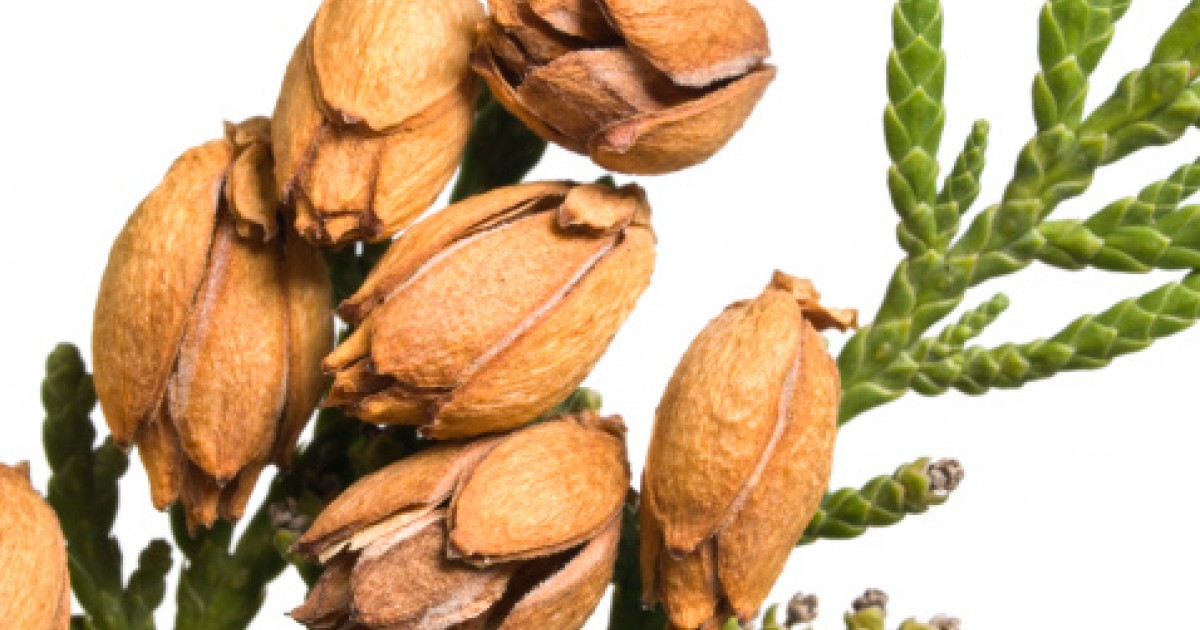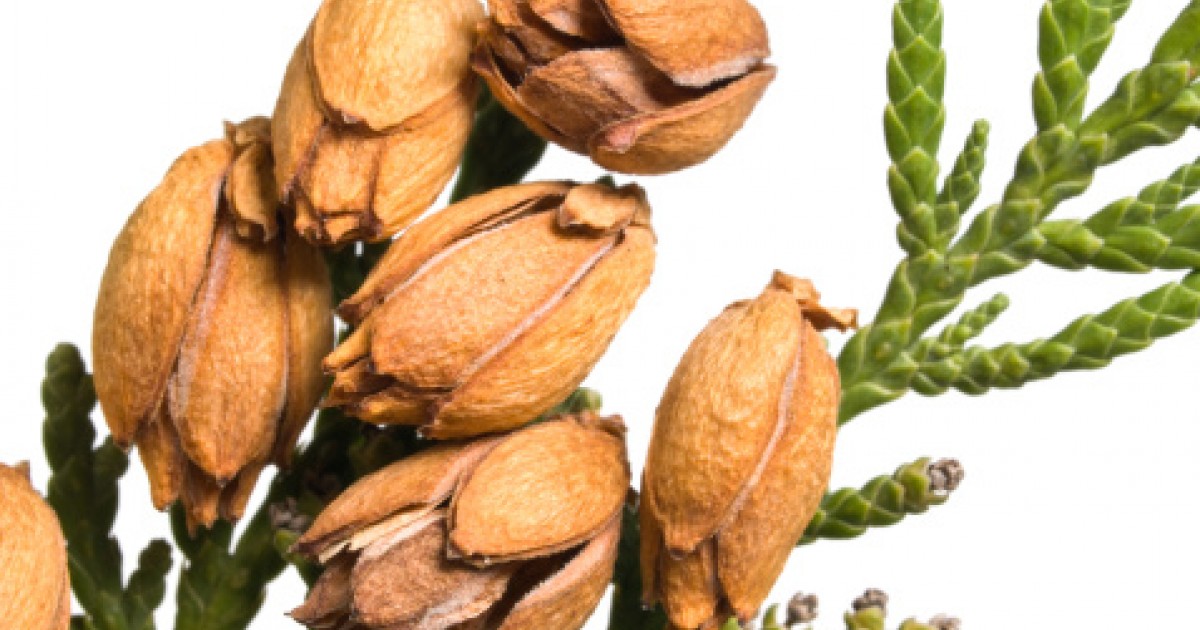Biota Herb Benefits You Didn’t Know Existed! While the name might sound unfamiliar, this ancient herb has been used for centuries in traditional medicine for its remarkable health benefits. From promoting respiratory health to boosting immunity and even enhancing skin health, Biota herb offers a range of potential applications that have captivated the attention of modern science.
Biota herb, scientifically known as Platycladus orientalis, is a coniferous evergreen native to East Asia. Its origins can be traced back to traditional Chinese medicine, where it has been used for centuries to address a variety of ailments. The plant’s unique characteristics, including its aromatic leaves and potent bioactive compounds, have contributed to its enduring popularity as a natural remedy.
Introduction to Biota Herb

Biota herb, scientifically known asPlatycladus orientalis*, is a coniferous evergreen tree native to East Asia, particularly China, Korea, and Japan. It has a long history of traditional use in various cultures for its medicinal properties. Biota herb has been valued for its potential benefits in treating respiratory ailments, promoting relaxation, and supporting overall health.
Biota herb is known for its wide range of medicinal benefits, from boosting immunity to aiding digestion. But did you know it can also be a powerful tool for enhancing your gardening experience? Just like Biota herb can multiply its benefits, you can also grow an abundance of beautiful African violets from a single plant! Check out this helpful guide on How to Grow Endless African Violets from One Plant to discover the secrets of propagation.
With a little patience and the right techniques, you can enjoy a vibrant display of these charming blooms year-round, just like Biota herb can bring continuous health benefits.
Biota Herb’s Unique Characteristics and Potential Benefits
Biota herb possesses a unique combination of characteristics that contribute to its potential health benefits. Its leaves, twigs, and seeds contain various bioactive compounds, including essential oils, flavonoids, and tannins. These compounds exhibit a range of pharmacological activities, making biota herb a valuable natural remedy.
- Antioxidant Properties:Biota herb’s rich antioxidant content helps combat free radical damage, which can contribute to oxidative stress and various health problems.
- Anti-Inflammatory Effects:Studies suggest that biota herb may possess anti-inflammatory properties, potentially aiding in the management of inflammatory conditions.
- Respiratory Support:Traditional medicine has long used biota herb to address respiratory issues like coughs, bronchitis, and asthma. Its expectorant and bronchodilator effects may help relieve respiratory symptoms.
- Relaxation and Sleep Enhancement:Biota herb has been associated with calming effects, potentially promoting relaxation and improving sleep quality.
- Antimicrobial Activity:Some research indicates that biota herb may possess antimicrobial properties, potentially inhibiting the growth of certain bacteria and fungi.
Unexpected Benefits of Biota Herb
Beyond its traditional uses, Biota herb offers a range of potential health benefits that have gained attention in recent years. Scientific research continues to uncover the various ways this herb can positively impact our well-being.
Respiratory Health Benefits
Biota herb has long been used in traditional medicine to address respiratory issues. Modern research suggests that it may possess properties that can benefit respiratory health.
Biota herb contains compounds that may act as bronchodilators, helping to relax the muscles in the airways and ease breathing.
It is believed that these compounds can also help to reduce inflammation in the respiratory system, potentially easing symptoms associated with conditions like asthma and bronchitis. While more research is needed to fully understand the mechanisms and efficacy of Biota herb for respiratory health, its traditional use and preliminary findings suggest it may offer a natural approach to supporting respiratory well-being.
Immune Function and Infection Fighting
Biota herb has been traditionally used to support the immune system and fight infections. Modern research is starting to shed light on the potential mechanisms behind these traditional uses.
Biota herb contains compounds that may possess antimicrobial and antiviral properties, helping to combat infections.
Studies suggest that these compounds can potentially inhibit the growth of certain bacteria and viruses, contributing to a stronger immune response. While further research is needed to fully understand its impact on the immune system, Biota herb’s traditional use and preliminary findings suggest it may offer a natural approach to supporting immune health.
Skincare Applications
Biota herb has been used in traditional skincare practices for its potential benefits for the skin. Modern research is starting to explore the scientific basis for these traditional uses.
Biota herb contains compounds that may possess antioxidant and anti-inflammatory properties, which could contribute to healthy skin.
These properties may help protect the skin from damage caused by free radicals and reduce inflammation, potentially promoting a clearer and more radiant complexion. While more research is needed to fully understand its impact on the skin, Biota herb’s traditional use and preliminary findings suggest it may offer a natural approach to supporting healthy skin.
Scientific Evidence and Research

While anecdotal evidence suggests Biota herb may offer various health benefits, scientific research is still in its early stages. However, ongoing studies are shedding light on the potential mechanisms behind these benefits and the bioactive compounds present in the herb.
Chemical Composition and Bioactive Compounds
Biota herb is known to contain a rich array of bioactive compounds, including essential oils, flavonoids, tannins, and terpenoids. These compounds are believed to contribute to the herb’s potential therapeutic effects.
- Essential Oils:Biota herb is particularly rich in essential oils, including sabinene, α-pinene, and β-pinene. These oils have been associated with antimicrobial, antifungal, and anti-inflammatory properties.
- Flavonoids:Biota herb contains various flavonoids, such as quercetin and kaempferol. Flavonoids are known antioxidants that can help protect cells from damage caused by free radicals.
- Tannins:Tannins are polyphenols found in Biota herb that exhibit astringent properties. They are believed to play a role in reducing inflammation and protecting the digestive system.
- Terpenoids:Terpenoids are a diverse group of compounds found in Biota herb. Some terpenoids, such as α-humulene and β-caryophyllene, have been linked to anti-inflammatory and analgesic effects.
Mechanisms of Action
The bioactive compounds in Biota herb are believed to exert their effects through various mechanisms, including:
- Antioxidant Activity:Biota herb’s flavonoids and other antioxidants can neutralize free radicals, reducing oxidative stress and protecting cells from damage.
- Anti-inflammatory Effects:The essential oils, terpenoids, and tannins in Biota herb may inhibit the production of inflammatory mediators, reducing inflammation in the body.
- Antimicrobial and Antifungal Properties:The essential oils in Biota herb have demonstrated antimicrobial and antifungal activity against various bacteria and fungi.
- Immunomodulatory Effects:Some studies suggest that Biota herb may modulate the immune system, potentially enhancing immune function.
Research Findings, Biota Herb Benefits You Didn’t Know Existed!
While research on Biota herb is still limited, several studies have explored its potential benefits:
- Anti-Inflammatory Effects:Studies in animal models have shown that Biota herb extracts can reduce inflammation in various tissues, including the lungs, liver, and joints.
- Antimicrobial Activity:In vitro studies have demonstrated that Biota herb extracts can inhibit the growth of various bacteria and fungi, including Staphylococcus aureus and Candida albicans.
- Potential for Skin Health:Some research suggests that Biota herb extracts may have potential benefits for skin health, such as reducing acne and improving wound healing.
- Potential for Respiratory Health:Biota herb has been traditionally used for respiratory ailments. Some studies suggest that its essential oils may help relieve symptoms of coughs and colds.
Safe Use and Potential Side Effects
While Biota herb offers potential health benefits, it’s crucial to use it safely and responsibly. Understanding the recommended dosage, potential side effects, and interactions with medications is essential to minimize risks and maximize its benefits.
It’s important to note that the information provided here is for general knowledge and should not be considered medical advice. Always consult with a qualified healthcare professional before using Biota herb, especially if you have any underlying health conditions or are taking medications.
Recommended Dosage and Safe Consumption
The recommended dosage of Biota herb varies depending on the form of consumption and individual factors. It’s essential to follow the instructions provided by the manufacturer or consult with a healthcare professional for personalized guidance.
- Tea:A typical serving size for Biota herb tea is one to two teaspoons of dried herb per cup of hot water. Steeping for 10-15 minutes is recommended.
- Tincture:The dosage for Biota herb tincture can vary depending on the concentration. A general guideline is 10-20 drops diluted in water, taken one to three times daily.
- Capsules:The dosage for Biota herb capsules is typically 500-1000 mg per day, divided into two to three doses.
It’s important to start with a lower dose and gradually increase it as needed, while carefully monitoring for any side effects. It’s also advisable to avoid consuming Biota herb on an empty stomach, as it may cause gastrointestinal discomfort.
While Biota Herb is known for its calming properties, did you know it can also be used to create a healthy environment for your African violets? If you’re looking to propagate these delicate beauties, you’ll want to check out this guide on How to Maximize Your African Violet Propagation Success Rate for tips on creating the ideal growing conditions.
By optimizing your propagation process, you can ensure your African violets thrive, allowing you to enjoy their vibrant blooms for years to come.
Potential Side Effects and Interactions
Biota herb is generally considered safe when used appropriately. However, some potential side effects may occur, especially with higher doses or prolonged use.
- Gastrointestinal Issues:Nausea, vomiting, diarrhea, and stomach cramps are possible side effects.
- Allergic Reactions:Some individuals may experience allergic reactions, such as skin rash, itching, or swelling.
- Central Nervous System Effects:In rare cases, Biota herb may cause dizziness, headache, or drowsiness.
Biota herb may interact with certain medications, including blood thinners, anti-depressants, and medications that affect the central nervous system. It’s crucial to inform your healthcare provider about all medications and supplements you are taking before using Biota herb.
Contraindications and Precautions
Biota herb is contraindicated for individuals with certain health conditions, including:
- Pregnancy and Breastfeeding:Biota herb is not recommended during pregnancy or breastfeeding due to a lack of safety data.
- Liver or Kidney Disease:Individuals with liver or kidney disease should avoid Biota herb as it may put additional strain on these organs.
- Autoimmune Disorders:Biota herb may worsen autoimmune disorders, such as lupus or rheumatoid arthritis.
It’s also important to note that Biota herb may interact with certain medications, including blood thinners, anti-depressants, and medications that affect the central nervous system. It’s crucial to inform your healthcare provider about all medications and supplements you are taking before using Biota herb.
Always consult with a qualified healthcare professional before using Biota herb, especially if you have any underlying health conditions or are taking medications.
Practical Applications and Usage
Biota herb, with its diverse array of potential benefits, has a long history of use in traditional medicine and herbal remedies. Its applications extend beyond traditional practices, encompassing modern wellness approaches and even culinary explorations.
Traditional Medicinal Uses
Biota herb has been a staple in traditional medicine systems across various cultures for centuries. It has been used to address a range of ailments, including respiratory issues, digestive problems, and skin conditions.
- Respiratory Health:Biota herb has been traditionally used to alleviate respiratory ailments like coughs, bronchitis, and asthma. Its expectorant properties help to loosen phlegm and ease congestion.
- Digestive Support:In traditional medicine, Biota herb has been employed to address digestive issues like indigestion, bloating, and diarrhea. Its anti-inflammatory properties may help soothe the digestive tract.
- Skin Care:Biota herb has been used topically for skin conditions like eczema, psoriasis, and acne. Its antimicrobial and anti-inflammatory properties may help reduce inflammation and promote healing.
Incorporating Biota Herb into a Healthy Lifestyle
Biota herb can be seamlessly integrated into a holistic wellness routine, offering a natural approach to promoting overall well-being.
- Herbal Teas:Biota herb can be brewed into a soothing tea, enjoyed throughout the day. The tea can be prepared by steeping a teaspoon of dried Biota herb in hot water for 5-10 minutes. It can be sweetened with honey or lemon to taste.
- Tinctures:Biota herb tinctures offer a convenient way to incorporate the herb into a daily regimen. Tinctures are concentrated herbal extracts that can be taken orally in small doses, typically diluted in water or juice.
- Supplements:Biota herb supplements, available in capsule or tablet form, provide a standardized dose of the herb’s active compounds. It is essential to choose high-quality supplements from reputable manufacturers.
Culinary Applications
While Biota herb is primarily known for its medicinal properties, it also holds potential for culinary exploration.
- Flavoring Agent:Biota herb’s unique flavor profile can add depth and complexity to dishes. Its piney and slightly bitter notes can complement savory dishes, while its aromatic qualities can enhance desserts.
- Infused Oils:Biota herb can be infused into oils to create flavorful and aromatic oils for cooking or as a salad dressing.
- Spice Blends:Biota herb can be incorporated into spice blends, adding a distinctive flavor and aroma to various dishes.
Conclusion
Biota herb, scientifically known as _Platycladus orientalis_, has shown promise in various aspects of health and well-being. Its potential benefits range from supporting respiratory health and promoting relaxation to possessing antioxidant and antimicrobial properties. However, it’s crucial to emphasize that while research is ongoing, more studies are needed to fully understand the efficacy and safety of Biota herb for medicinal purposes.
Importance of Consultation with Healthcare Professionals
It is highly recommended to consult with a qualified healthcare professional before incorporating Biota herb into your health regimen, especially if you have pre-existing medical conditions, are pregnant or breastfeeding, or are taking any medications. This ensures that the herb is appropriate for your individual needs and does not interact negatively with any other treatments you may be undergoing.
Responsible and Informed Use of Herbal Remedies
The use of herbal remedies, including Biota herb, should be approached with caution and a focus on responsible and informed use. It’s important to source herbs from reputable suppliers, follow recommended dosages, and be aware of potential side effects. While herbal remedies can offer valuable health benefits, they should not replace conventional medical treatment or be used as a substitute for professional medical advice.
Concluding Remarks: Biota Herb Benefits You Didn’t Know Existed!

Biota herb, with its rich history and potential health benefits, offers a compelling glimpse into the world of natural remedies. While research continues to uncover its full potential, its traditional uses and promising scientific findings suggest that this ancient herb may hold valuable therapeutic properties.
However, it is crucial to consult with a healthcare professional before incorporating Biota herb into any treatment regimen, especially if you have underlying health conditions or are taking medications. By approaching the use of herbal remedies with caution and seeking guidance from qualified professionals, you can harness the potential benefits of nature while prioritizing your well-being.
FAQ Compilation
Is Biota herb safe for everyone to use?
While generally considered safe, Biota herb may not be suitable for everyone. It’s essential to consult with a healthcare professional before using it, especially if you have any pre-existing health conditions or are taking medications.
Can I find Biota herb in my local grocery store?
Biota herb is not commonly found in mainstream grocery stores. It’s more readily available at specialty health food stores or online retailers that specialize in herbal remedies.
How does Biota herb compare to other herbs with similar benefits?
Biota herb shares some similarities with other herbs, such as ginger and turmeric, in its potential benefits for respiratory health and immune function. However, its specific properties and mechanisms of action may differ. Consulting with a healthcare professional can help determine the best herb for your individual needs.
